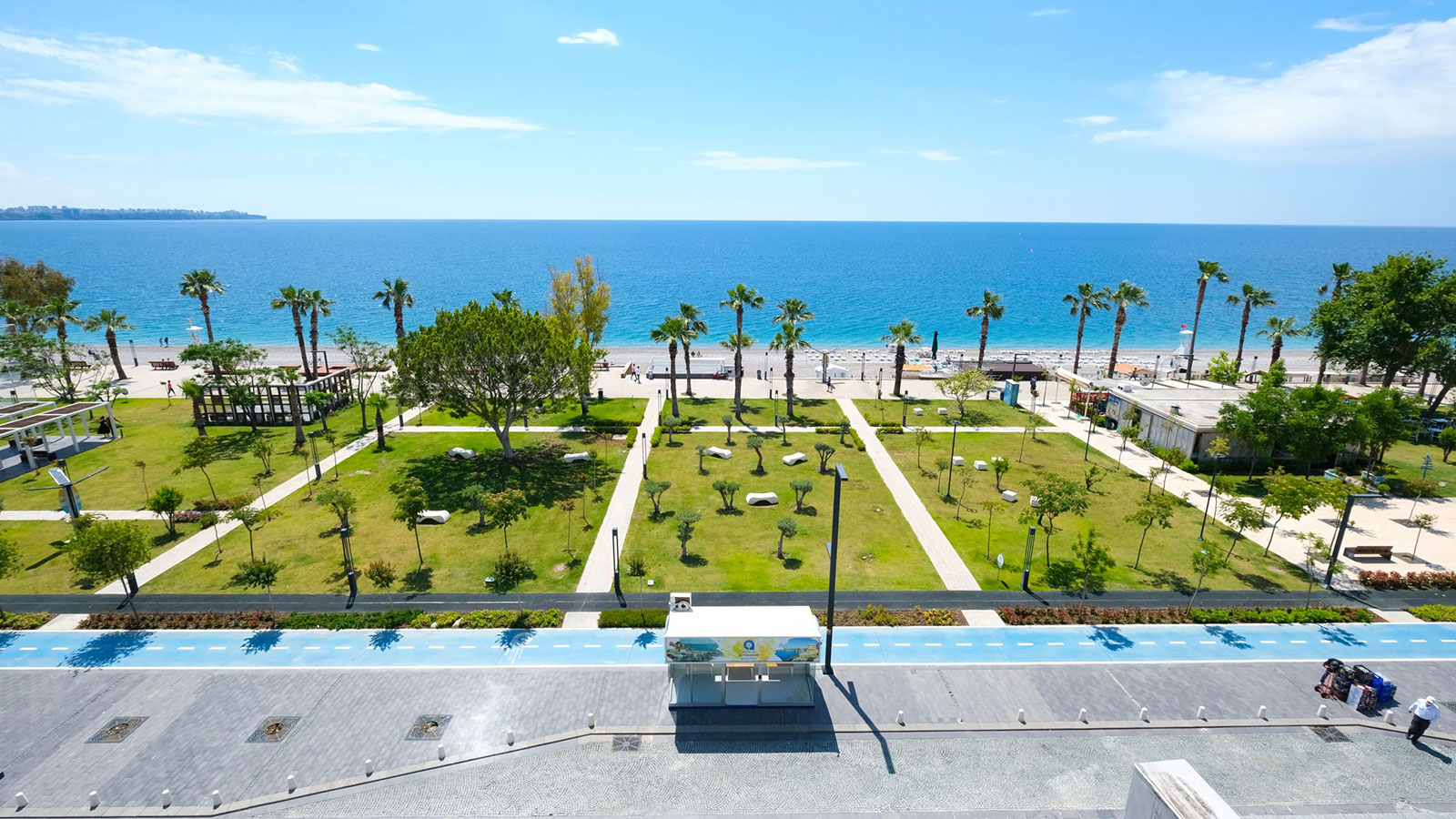Hair transplant surgery removes hair from the donor region of the scalp and transplants it to the area where hair loss has occurred (the recipient area). Many individuals choose this permanent hair loss therapy to boost their confidence and looks.
Turkey has become a hub for hair transplant procedures, with many international patients travelling to the country to undergo this treatment. The nation has historically provided high-quality medical treatments, including cosmetic operations. Here are some of the reasons why Turkey has become a preferred destination for hair transplant procedures:

Is Turkey good for hair transplants?
Turkish hair transplants are excellent. The country is a renowned medical tourism destination for hair transplants. Turkey is suitable for hair transplant patients due to its advanced healthcare system and skilled doctors.
Turkey’s hair transplant facilities provide economical, high-quality therapy. Hair transplants are cheaper in the nation due to competition. Hair transplants cost a fraction of what they would in the US or Europe.
Turkey offers several specialist hair transplant facilities with expert physicians that employ the newest methods and technology for maximum outcomes. These facilities provide detailed consultations, tailored treatment regimens, and helpful personnel.
Turkey’s climate aids hair transplants. Warm weather and low humidity might help people relax and recuperate after surgery.
In conclusion, Turkey is a wonderful hair transplant destination because of its advanced healthcare system, specialist facilities, skilled doctors, low rates, and favourable environment. To guarantee the greatest treatment, people should investigate the clinic and doctors before the operation.

Why is Turkey number 1 in hair transplant?
Turkey is the leading hair transplant destination for numerous reasons.
- Turkey has numerous hair transplant specialists. Turkish doctors have years of experience conducting hair transplants.
- Turkey has extensively invested in hair transplant technologies and processes. Turkey’s hair transplant clinics utilise cutting-edge FUE and DHI methods to provide the greatest outcomes.
- Competitive Prices: Turkey has far cheaper hair transplant pricing than Europe or the US. Clinics may charge less without sacrificing quality, owing to the reduced cost of living and overhead.
- High Success Rates: Most Turkish hair transplant patients have natural-looking, permanent results. Hair transplant success rates are excellent due to competent doctors and improved technologies.
- Tourism: Turkey provides beaches, historical monuments, and cultural activities. Vacations and hair transplants are handy and cost-effective.
In conclusion, Turkey is the top hair transplant destination owing to its competent doctors, innovative technology, reasonable costs, excellent success rates, and tourist prospects. Patients may expect high-quality, inexpensive therapy with natural-looking, lasting results.
How much does a full hair transplant cost in Turkey?
The cost of a complete hair transplant in Turkey depends on the clinic’s location, reputation, and surgeon, the quantity of grafts needed, and the patient’s case complexity.
Turkey’s typical complete hair transplant costs $1,500 to $5,000 USD, although pricing might vary based on the criteria above. Some clinics provide all-inclusive packages that include transportation, lodging, and aftercare, which might increase the cost of the treatment.
To guarantee a safe and successful hair transplant in Turkey, find a renowned facility with skilled doctors. Patients should also evaluate clinic prices and services to make an educated choice.
Why is Turkey so cheap for hair transplant?
Turkey is recognised for its affordable hair transplants, especially in Europe and the US. Turkish hair transplants are inexpensive for various reasons:
- Turkey’s lower cost of living equals reduced hair transplant clinic operating expenses. Clinics may cut hair transplant pricing due to cheaper rent, utilities, and staff compensation.
- Exchange Rates: The Turkish Lira is weaker than the Euro and US dollar. Foreign patients who change their cash to Turkish Lira will receive more for their money, lowering hair transplant costs.
- Government Support: Turkey aggressively promotes medical tourism, including hair transplants. This assistance has reduced hair transplant clinic taxes and subsidies, lowering patient expenses.
- Turkish hair transplant clinics compete fiercely. To entice customers, clinics offer competitive costs. Clinics also provide high-quality treatment to compete.
- Turkey’s effective healthcare system lowers medical costs. Hair transplant clinics might cut costs since they work faster than other nations.
In conclusion, Turkey provides hair transplants at reduced pricing because of lower operational expenses, currency exchanges rates, government backing, considerable competition, and healthcare system efficiency. Turkey attracts medical tourists because it offers affordable, high-quality treatment.

What distinguishes hair transplant clinics in Turkey?
Turkey’s hair transplant facilities include innovative equipment, and high-quality services. Turkish hair transplant facilities have these traits:
- The International Society of Hair Restoration Surgery (ISHRS) and the Turkish Ministry of Health recognise and certify Turkish hair transplant centres. These accreditations guarantee that clinics follow stringent safety and quality requirements and use certified and experienced surgeons and technicians.
- Turkish hair transplant clinics employ cutting-edge technology and facilities. The clinics feature sterile operating rooms. The clinics employ advanced diagnostic, anaesthetic, and post-operative technology.
- Turkish hair transplant facilities include multilingual personnel that speak English, Arabic, French, and other languages. International patients can better interact with clinic professionals and comprehend procedures and aftercare.
- Customised Care: Turkish hair transplant facilities provide extensive preoperative consultations, specific treatment programmes, and personalised aftercare instructions. Clinics monitor patients’ recovery through follow-up treatment.
In conclusion, Turkish hair transplant clinics provide high-quality procedures, innovative technology, bilingual personnel, and customised care. Turkish hair transplant facilities provide high-quality treatments to international patients. To achieve the greatest results, study and pick a reputed and qualified hair transplant centre.
What qualities distinguish Turkish hair transplant doctors?
Turkey’s hair transplant doctors specialise in treating men and women’s hair loss and baldness. Turkish hair transplant specialists specialise in:
- Turkey’s hair transplant surgeons are well-trained. They have medical degrees and hair transplant surgical expertise.
- Turkey’s hair transplant doctors use Follicular Unit Extraction (FUE) and Direct Hair Implantation (DHI) (DHI). These methods provide more accurate and natural outcomes.
- Artistic Skills: Turkey’s hair transplant surgeons can construct natural-looking hairlines and hair patterns that match the patient’s facial characteristics.
- While treating overseas patients, many Turkish hair transplant doctors are bilingual. They can speak with patients in their own language to make them feel comfortable and comprehend therapy.
- Turkish hair transplant surgeons use cutting-edge technology and equipment. Patients get the greatest attention and outcomes.
- Turkey’s hair transplant surgeons cater to each patient’s demands. They adjust treatments to the patient’s hair loss situation, hair type, and cosmetic objectives.

How does Turkey’s climate affect hair transplantation?
Turkey’s climate might affect hair transplant recovery. Turkey has a moderate climate, with hot, dry summers and warm, wet winters. Turkey’s weather affects hair transplant recovery:
- Hair transplant patients’ scalps are particularly susceptible to sunlight. Sunburn may impede healing and create difficulties. Patients should avoid direct sunlight for a week following the operation. Patients should wear a helmet or apply a high-SPF sunscreen while outdoors due to Turkey’s sunny weather.
- Turkey’s summer humidity can bother hair transplant patients. Excessive humidity increases scalp itching and infection risk. Avoid issues by keeping the scalp clean and dry throughout recuperation.
- Turkey’s moderate climate might extend allergy season, altering hair transplant recovery. Seasonal allergies may induce inflammation and slow recovery, thus patients with them should avoid allergens.
- Turkey’s climate might also impact recuperation. Summer’s hot and dry weather might bother patients, while winter’s moderate and wet weather can hinder movement and outdoor activities. Plan your hair transplant in Turkey around the weather.
Finally, Turkey’s climate might affect hair transplant recovery and success. Weather might impact recuperation, so patients should be informed and take measures. Turkey’s hair transplant hospitals provide patients thorough information on scalp care and climate management following the treatment.
What tourism options are available to hair transplant patients in Turkey?
Patients may combine a hair transplant with a holiday in Turkey, a renowned tourist destination. Turkey offers tourism for hair transplant patients:
- Turkey has several historical and cultural attractions that draw visitors from throughout the globe. Istanbul’s famous sites include the Blue Mosque, Hagia Sophia, and Topkapi Palace. Before or after hair transplantation, patients may experience the city’s rich history and culture.
- Nature Landscapes: Cappadocia is famed for its spectacular rock formations and hot air balloon excursions. Hot springs and travertine terraces draw visitors to Pamukkale. Patients may enjoy Turkey’s stunning scenery.
- Beaches and Resorts: Turkey’s beaches and resorts allow patients to rest and recover following their hair transplant. Bodrum, Alanya, and Antalya are prominent Turkish beach getaways. Patients may heal by enjoying the sun, beach, and sea.
- Turkey’s bazaars, marketplaces, and food are famous. Patients may shop and eat while visiting the city. Turkish cuisine has countless delicious traditional dishes.
In conclusion, Turkey has several hair transplant tourist options. Patients may enjoy the country’s history, natural beauty, beaches, shopping, and food. To relax and heal while exploring Turkey, patients may schedule their itinerary around their hair transplant.
How long do Turkish hair transplants last?
Like with any place, the duration of a hair transplant in Turkey relies on the patient’s age, the donor area’s quality, the method employed, and the surgeon’s skill. In general, Turkish hair transplants endure.
Turkey uses Follicular Unit Extraction (FUE) to transplant hair follicles from the donor location to the balding or thinning scalp. This approach yields natural, long-lasting effects.
After the process, transplanted hair sheds, which is normal. New hair growth should start a few months after the surgery and last 6–12 months.
Due to hereditary resistance, hair transplants are typically permanent. Yet, hereditary or other causes may cause surrounding natural hair to lose hair. To preserve hair look, patients may require further operations.
Which cities in Turkey are best for hair transplant?
Istanbul, Ankara, and Antalya are the most famous Turkish cities for hair transplants. Some patients may prefer one city over another.
Istanbul has several competent and renowned hair transplant facilities. International travellers may readily reach the city.
Turkey’s capital, Ankara, is another hair transplant destination. The city features reputed facilities with qualified surgeons and reduced operation costs than Istanbul.
Hair transplants are becoming widespread in Antalya, a beach city in southern Turkey. The city’s pleasant temperature and laid-back vibe attract hair transplant patients who wish to holiday.
The ideal city for a hair transplant in Turkey depends on the patient’s preferences, the clinic’s reputation, and the surgeon’s expertise.
Why do people go to Turkey for hair transplants?
Due to numerous circumstances, hair transplants in Turkey have grown popular.
First, hair transplants in Turkey are cheaper than in the US and Europe. It appeals to individuals seeking economical hair transplants without sacrificing quality.
Second, Turkey has many expert hair transplant surgeons who undertake these surgeries regularly. These surgeons employ cutting-edge procedures and technology to get the best outcomes.
Finally, the Turkish government aggressively promotes medical tourism, including hair transplants. This has resulted in a well-established medical tourism infrastructure, comprising high-quality clinics, contemporary equipment, and skilled employees to serve overseas patients.
Lastly, Turkey’s position at the crossroads of Europe and Asia makes it accessible from many nations, and several airlines fly directly to major Turkish cities.
Turkey is a popular hair transplant destination because of its reasonable rates, expert surgeons, supporting infrastructure, and accessibility.
How long is the waiting list for hair transplants in Turkey?
Turkey’s hair transplant waiting period depends on the clinic’s popularity, the surgeon’s availability, and the patient’s case complexity.
After the first assessment, most Turkish facilities may do hair transplants within weeks to months, depending on availability and the patient’s schedule. Due to increased demand from local and foreign patients, summer waiting times may be longer.
Some clinics provide same-day or speedier scheduling, but it’s vital to study and find a reputable facility with competent surgeons to guarantee a safe and successful treatment. Plan ahead and book early, since some clinics demand patients to reserve their operations far in advance to ensure a spot.
Is hair transplant in Turkey worth it?
Individual requirements, expectations, and money determine if a hair transplant in Turkey is worth it. Because of its skilled doctors, cutting-edge technology, and affordable rates, Turkey is a popular hair transplant destination.
Turkey hair transplants are affordable. Turkey is a popular hair transplant destination due to its lower pricing. Several clinics provide handy packages that include transportation, lodging, and aftercare.
Despite cheaper rates, customers should find a reputed facility with competent surgeons to guarantee a safe and successful treatment. Patients should also have reasonable expectations and recognise that hair transplant outcomes might take months to a year to completely mature and need care.
Turkey offers a cost-effective and reliable hair transplant alternative.
How long is a hair transplant in Turkey?
The amount of grafts and patient complexity affect the length of a hair transplant in Turkey.
Turkey’s hair transplants typically take 4–8 hours, although longer ones may take longer. Patients are awake and comfortable throughout the local anaesthetic treatment.
Patients should rest and avoid vigorous activity for a few days after the treatment. To guarantee adequate healing and best outcomes, follow the clinic’s post-operative recommendations. Most patients may return to work and regular activities within a few days.
It’s also vital to understand that hair transplant outcomes in Turkey might take several months to a year to emerge. To get the greatest results, patients should be patient and follow the clinic’s aftercare guidelines while their transplanted hairs shed and regenerate.
Can you trust surgery in Turkey?
Turkish hair transplants are safe. Due to its expert hair transplant doctors, modern facilities, and low rates, Turkey has become a top hair transplant destination.
Follicular Unit Extraction (FUE) and Direct Hair Implantation (DHI) are used in most Turkish hair transplant clinics for natural-looking and long-lasting outcomes. The Turkish government also regulates hair transplants for safety and quality.
Hair transplant surgery, like any medical operation, has risks and problems. To choose a reliable and experienced hair transplant clinic, investigate the clinic and surgeon, read patient reviews and testimonials, and ask questions.
Do hair transplants in Turkey work?
Turkish hair transplants work well. Turkish hair transplant doctors use Follicular Unit Extraction (FUE) and Direct Hair Implantation (DHI) to obtain natural-looking, long-lasting outcomes.
Most Turkish facilities provide low costs, making hair transplant operations accessible for international patients. Nevertheless, each medical operation has dangers and issues, therefore not all Turkish hair transplants are successful.
Select a trustworthy and experienced clinic, investigate the clinic and surgeon, and consult a skilled medical specialist to maximise your hair transplant’s success. Follow post-operative instructions and schedule follow-up consultations.
Why is Turkey so good at hair transplants?
Turkey is a notable hair transplant location for numerous reasons:
- Skilled surgeons: Turkish hair transplant surgeons use innovative methods including Follicular Unit Extraction (FUE) and Direct Hair Implantation (DHI) to obtain natural-looking and long-lasting results.
- Turkish hair transplant clinics utilise cutting-edge technology and methods to get the greatest outcomes.
- Inexpensive prices: Turkey’s hair transplant operations are cheaper than in other nations, attracting people from across the globe.
- International patients: Turkey’s hair transplant facilities are used to handling overseas patients and have multilingual personnel.
- Turkey has a well-developed tourist infrastructure, with many cities providing a broad selection of lodgings, restaurants, and activities to suit varied budgets and interests. International patients might combine their hair transplant with a holiday.
Is a hair transplant in Turkey painful?
Turkey’s hair transplants are done under local anaesthetic, so patients shouldn’t experience any pain. The technique may cause mild to severe scalp tension or irritation.
Most Turkish hair transplant facilities give pain medication or other techniques to reduce discomfort during and after the treatment. Patients may be advised to avoid particular activities or follow special aftercare recommendations to reduce pain and enhance recovery.
It’s crucial to realise that every person’s experience with pain and discomfort may vary, and the degree of discomfort experienced after a hair transplant in Turkey may depend on things including the procedure’s extent, pain tolerance, and the surgeon’s skills.